Search
Remove Ads
Advertisement
Summary 
Loading AI-generated summary based on World History Encyclopedia articles ...
Search Results
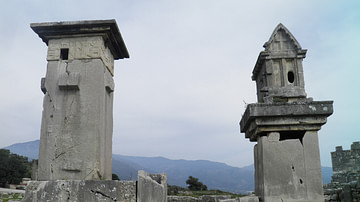
Definition
Lycia
Lycia is a mountainous region in south-west Anatolia (also known as Asia Minor, modern-day Turkey). The earliest references to Lycia can be traced through Hittite texts to sometime before 1200 BCE, where it is known as the Lukka Lands. The...

Definition
Sarpedon
Sarpedon is a figure from ancient Greek mythology, a Lycian prince who was one of the principal heroes during the Trojan War and fought on the side of Troy. According to Homer's Iliad, he was the son of Zeus by Laodameia and the cousin of...
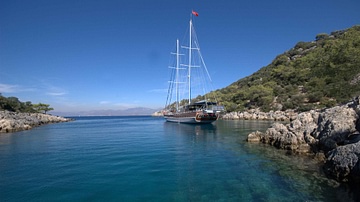
Article
Travelling Along the Lycian Way
The Lycian Way follows over 540km (335 miles) of ancient roadways, mule tracks and shepherds' paths along one of Turkey's most remote and untouched coastlines. Theresa Thompson discovers the joys of following the trail and finding the ancient...

Article
The Heroon of Trysa: A Lycian Tomb Reappears
The Heroon of Trysa was the tomb of a powerful Lycian dynast surrounded by a precinct wall covered with remarkable mythological friezes. It was discovered in 1841 CE when a Polish-Prussian school teacher and classical philologist, Julius...
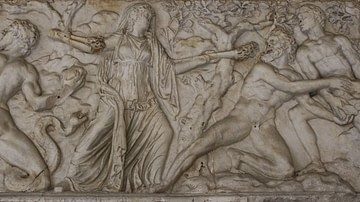
Definition
Leto
Leto is a Titan and the mother of the gods Apollo and Artemis in Greek mythology. Leto's twin children were the result of an amorous encounter with Zeus, and to avoid his wife Hera's wrath, the Titaness was obliged to give birth on the remote...
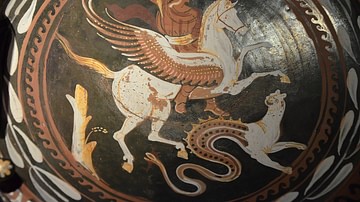
Definition
Bellerophon
Bellerophon (aka Bellerophontes) is the Corinthian hero of Greek mythology who famously battled and killed the fantastical Chimera monster, a fearsome fire-breathing mix of lion, goat, and snake. Bellerophon was the son of Poseidon and he...
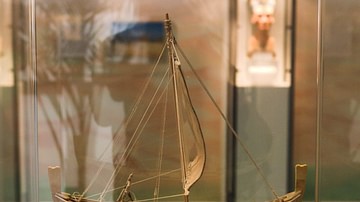
Definition
Uluburun Shipwreck
The Uluburun shipwreck is a Bronze Age vessel discovered lying off the coast of Kas, Turkey. The ship, probably originally from Phoenicia/Canaan, dates to between 1330 and 1300 BCE and was carrying a full cargo of trade goods, perhaps from...
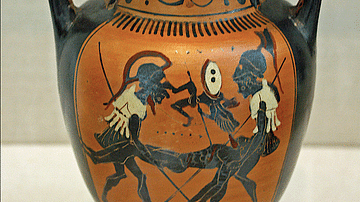
Definition
Thanatos
Thanatos is the personification of Death in Greek mythology. He is the son of Nyx (Night) and the twin brother of Hypnos (Sleep). Some sources also name Erebus (Darkness) as his father. As the personification of Death, Thanatos works under...
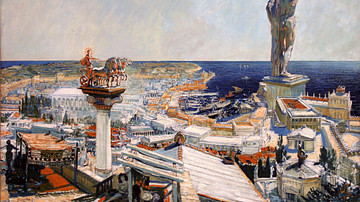
Definition
Rhodes
Rhodes, with an area of 1,400 km², is the largest island in the Greek Dodecanese group located in the south-eastern Aegean. The island was an important protagonist in wider Greek and Mediterranean affairs throughout the Bronze Age, Archaic...

3D Image
Nereid Monument from Lycia
The Nereid Monument is a sculptured tomb from Xanthos in classical period Lycia, close to present-day Fethiye in Mugla Province, Turkey. It took the form of a Greek temple on top of a base decorated with sculpted friezes, and is thought to...